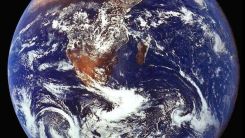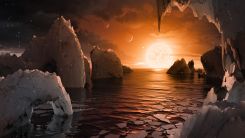
Mark B.


A Study on Globular Clusters Date the Universe at 13.35 Billion Years Old
40-Year Study Features Adaptability of Brittlebush to Warmer Environments
Natural Lithium in Drinking Water Linked to Lower Suicide Rates

Elderly Who Retain Sense of Smell Are at Lower Risk of Dementia
Cross-Border Science Team to Preserve Lake Titicaca Giant Frogs
Rare, "Ghostly" Sun Particles Detected in an Underground Experiment in Italy

Men With Higher Income May Face Greater Risk of High Blood Pressure

Chernobyl Fungi Can Be Natural Radiation Shields for the ISS

Earth Might Have Been Formed Faster, New Research Suggests
NASA Asteroid Camera Spots China's Tianwen-1 on Its Way to Mars

US Reveals Potentially Impenetrable Quantum Internet
COVID-19: Cells Causing Loss of Smell Have Now Been Identified

Pentagon's U.F.O. Unit to Disclose Some of Its Findings to the Public

Boston College Finds a New Way for Converting Carbon Dioxide to Methanol

Pregnant Women Unlikely to Pass COVID-19 to Babies

The US Space Force Reveals Official Logo and Motto

Stanford Researchers Devise Method to Predict Black Swan Events

4 of the Weirdest Kinds of Planets Ever Discovered
Scientists Find Previously "Lost" Planet in Search of Habitable Worlds
NASA Offers up to $180,000 to University Students Who Can Help Solve the Lunar Dust Problem
China Is Set to Join the Mars Race With Tianwen Spacecraft Trio
CDC Investigates New Multistate Salmonella Outbreak
Most Popular

Starlink Satellite Explodes in Orbit; SpaceX Confirms It'll Re-Enter Earth

Aurora Phenomenon: How Geomagnetic Storms and Space Weather Are Lighting Up the World

Ocean Warming Explained: Why Climate Science Shows Sea Temperature Rise Is Speeding Up

How Wildfires Start, Spread, and Ignite: Understanding the Causes and Fire Behavior Clearly




